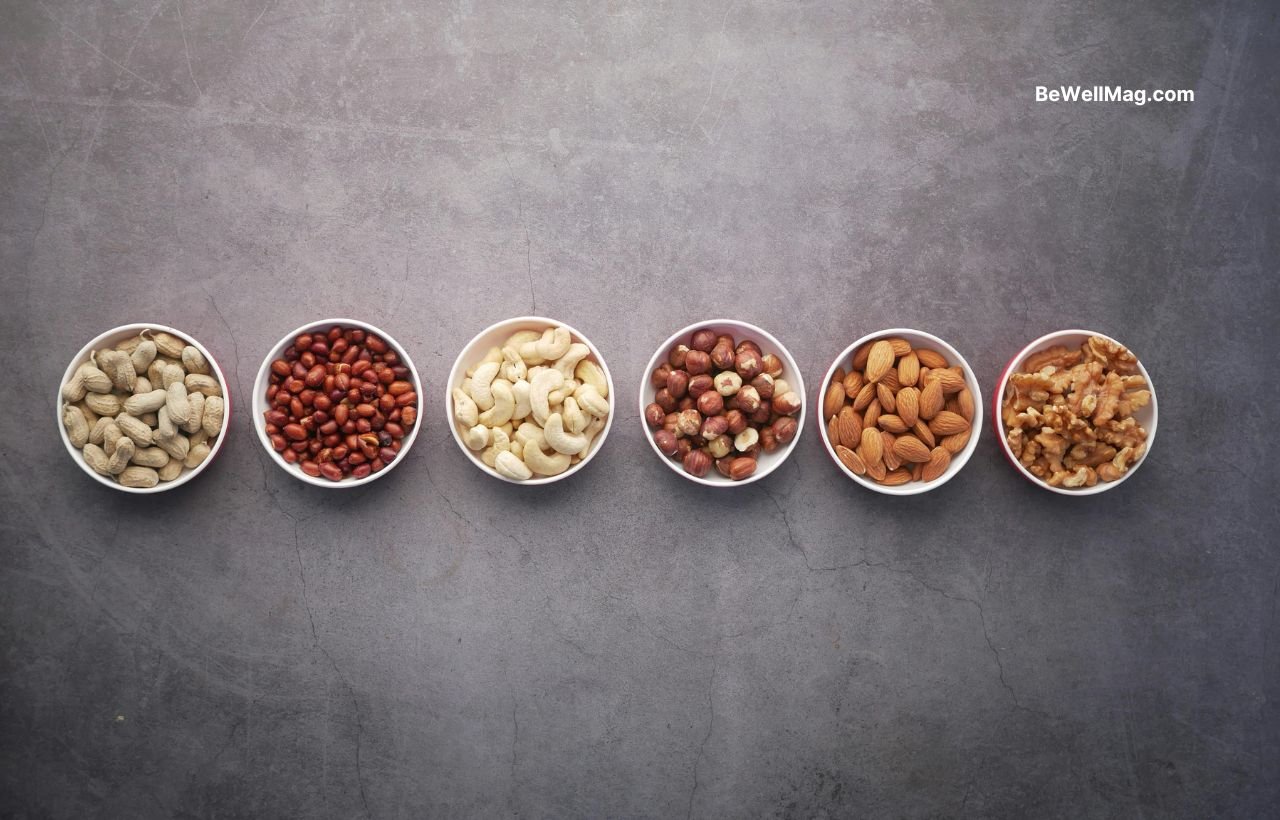Now Reading: 10 High-Protein Nuts to Maximize Muscle Growth and Curb Hunger
- 01
10 High-Protein Nuts to Maximize Muscle Growth and Curb Hunger

10 High-Protein Nuts to Maximize Muscle Growth and Curb Hunger
Maximize muscle growth and curb hunger with 10 high-protein nuts. Gain expert nutritional insights to fuel workouts and maintain lasting fullness naturally!!!!
In today’s fast-paced world, fueling your body with the right nutrients is key to sustaining energy and building lean muscle. High-protein nuts have rapidly become a favorite among fitness enthusiasts and busy professionals alike. Not only do they offer a natural way to boost muscle recovery and stave off hunger, but they also provide a spectrum of vitamins, healthy fats, and minerals essential for overall wellness.
Why High-Protein Nuts Matter
High-protein nuts are more than just a convenient snack—they pack a nutritional punch that supports muscle synthesis, helps curb hunger, and contributes to lasting energy. While many supplements isolate protein, whole-food sources like nuts offer balanced nutrition and essential micronutrients for recovery and overall health. With modern trends leaning toward natural, nutrient-dense foods, integrating these nuts into your daily routine can lead to significant improvements in workout performance and energy management.
Detailed Nut Analysis
Below is an individual breakdown of each nut, including the approximate amount of protein in a 1/4 cup serving, and why each one deserves a spot in your diet.
1. Peanuts
Protein (1/4 cup): 9.5 grams
Often mistaken for a nut, peanuts are actually legumes that lead the pack in protein content. They’re rich in healthy monounsaturated fats, fiber, and essential minerals like magnesium, which plays a role in muscle contraction. Their versatility—used in butters, snacks, or even added to smoothies—makes them a powerhouse for energy and recovery.
2. Almonds
Protein (1/4 cup): 7 grams
Almonds are celebrated for their crunch and wholesome benefits. Beyond their impressive protein content, they’re a great source of vitamin E, magnesium, and calcium. These nutrients support bone health and muscle function, while the fiber within almonds helps maintain steady blood sugar levels, keeping hunger at bay.
3. Pistachios
Protein (1/4 cup): 6 grams
Pistachios shine with their slightly sweet flavor and balanced nutrient profile. They not only provide a significant protein boost but also offer a range of essential amino acids. Their natural balance of fats and fiber aids in keeping you full and energizes muscle repair and recovery after strenuous workouts.
4. Cashews
Protein (1/4 cup): 5 grams
Smooth and creamy, cashews offer more than just a delightful taste. With their substantial magnesium, phosphorus, and zinc content, they play an important role in energy metabolism and muscle strength. Cashews are perfect as a standalone snack or as an enriching ingredient in various recipes.
5. Walnuts
Protein (1/4 cup): 4.5 grams
Walnuts are a prized nut, especially valued for their omega-3 fatty acids, which help reduce inflammation and support muscle protein synthesis. In addition to protein, walnuts contribute antioxidants and polyphenols that can assist in post-workout recovery and support overall cardiovascular health.
6. Pine Nuts
Protein (1/4 cup): 4 grams Pine nuts bring a delicate buttery flavor and a robust mix of nutrients including vitamin K, magnesium, and zinc. Though slightly lower in protein compared to peanuts or almonds, they are pivotal in maintaining vascular health and are frequently used in energy-boosting recipes like pestos and salad dressings.
7. Brazil Nuts
Protein (1/4 cup): 4 grams
These large, nutrient-dense nuts are renowned for their high selenium content—a trace mineral crucial for muscle repair and thyroid function. Adding Brazil nuts to your snack rotation not only supports muscle recovery but also bolsters immune health, making them a valuable addition to your diet.
8. Hazelnuts
Protein (1/4 cup): 4 grams Hazelnuts offer a unique blend of protein and antioxidants. With a generous supply of vitamin E and healthy fats, they support muscle repair and boost cardiovascular health. Their rich flavor makes them an enjoyable addition to both savory dishes and sweet treats.
9. Macadamia Nuts
Protein (1/4 cup): 2.5 grams
While macadamia nuts are on the lower end of the protein spectrum, they make up for it with an abundance of monounsaturated fats. These fats provide a steady, slow-burning energy source and have anti-inflammatory properties, which can be especially beneficial for recovery after intense workouts.
10. Chestnuts
Protein (1/4 cup): 1 gram
Chestnuts differ from typical nuts—they are very low in fat and protein but are high in fiber and vitamin C. Their starchy, slightly sweet flavor makes them a versatile ingredient in both savory and sweet dishes. They’re particularly beneficial for those looking to add nutrient variety without increasing caloric intake drastically.
Incorporating High-Protein Nuts Into Your Diet
Integrating these nutrient-dense nuts into your daily routine can be effortless. Use them as a quick snack between meals, blend them into your morning smoothie, or add them to salads and yogurt bowls for an added crunch. Not only will you benefit from their high protein content for muscle recovery and growth, but you’ll also enjoy a steady source of energy and satiety throughout the day.
Key Takeaways
- Nutrient-Density: Every 1/4 cup serving provides a notable boost of protein along with healthy fats, vitamins, and minerals.
- Muscle & Energy Benefits: The protein in these nuts directly contributes to muscle repair, while fiber and healthy fats keep hunger at bay.
- Versatility: From standalone snacks to recipe ingredients, these nuts fit seamlessly into any lifestyle.
- Holistic Nutrition: Emphasizing whole-food sources ensures you get comprehensive benefits beyond isolated protein.
Conclusion
Embracing high-protein, nutrient-dense nuts is a savvy way to elevate your nutrition strategy. Whether you’re an athlete aiming to maximize muscle growth or someone seeking to maintain balanced energy levels, these 10 nuts provide a delightful and versatile addition to your diet. With each nut offering its unique blend of proteins, fats, and micronutrients, you have a natural, delicious solution to support a healthier, more active lifestyle.











